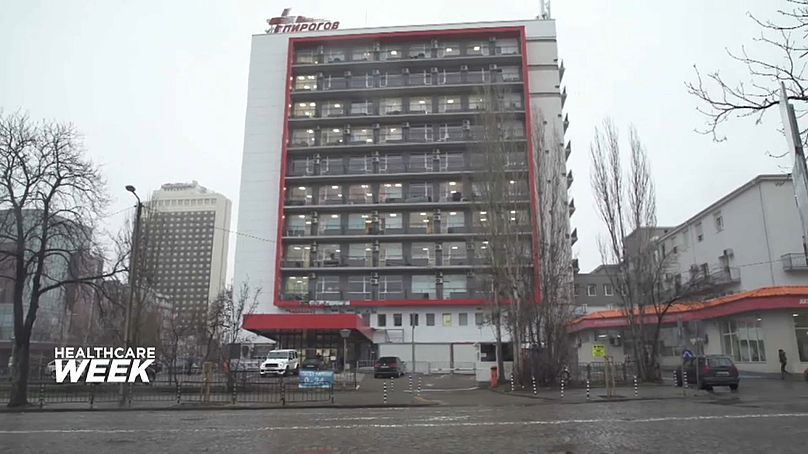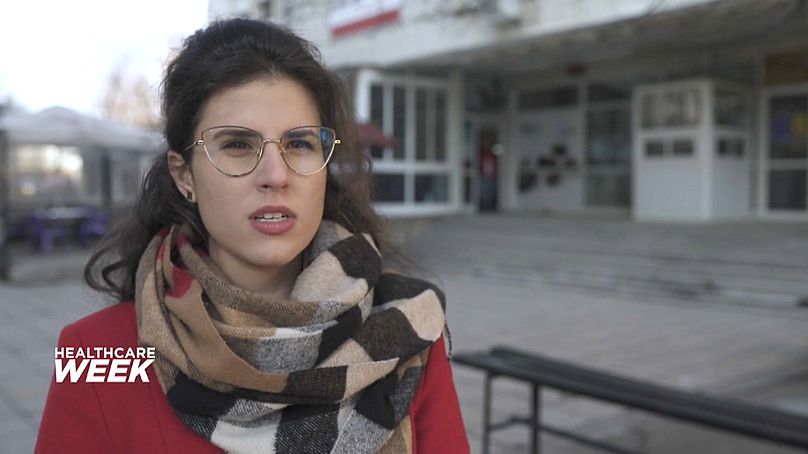Volunteer medical students are working in COVID-19 wards across Bulgaria.
The third wave of coronavirus is once again putting countries and healthcare systems to the test. This is especially true in Bulgaria where one of the main problems is the lack of medical personnel.
Pirogov Hospital in Sofia is one of the largest in the country. It has been at the forefront of the COVID-19 effort since day one. Medical students stepped up during the first and second waves of the pandemic to give a helping hand. They are now working in COVID-19 wards throughout the country.
Emilia Grigorova had been working at Pirogov Hospital for a year when the pandemic first hit. As a fifth-year medical student, she has yet to pick a speciality. For the moment, she is leaning towards burns and plastic surgery.
Choosing to volunteer in the COVID-19 department wasn't an easy decision for Emilia. However, she committed to do so after contracting the virus herself. She now prepares and administers medicine to patients.
She tells us that "there's a dire need of medical personnel right now". She says that to her it was obvious that the people working in the hospital were exhausted, "they were at their limit". That's another reason why she decided to volunteer.
The job is a challenging one because of how unpredictable the infection can be. Looking after the very sick also takes an emotional toll on healthcare workers.
"It is hard to see a patient who was fine two days ago suddenly take a turn for the worse. Then you realise this person might not survive, or they might survive with severe complications. That is the hardest part," Emilia adds.
Despite severe staff shortages in Bulgaria, medical students are at an all-time high. Their number has doubled in the past seven years to more than 12 000 students in 2020. However, few of them will choose to remain in the country. The reasons are not only financial.
According to Theodora Delcheva, the vice president of the Medical Students Association, the country has increasingly high numbers of foreign students who return home after their studies "probably because of the language barrier". A lot of Bulgarian students also prefer to leave because starting residency training abroad is easier.
Between 500 to 1,000 doctors leave Bulgaria every year. New government programmes have been put in place to attract young doctors. Medical students are being offered scholarships if they work in Bulgaria for three years following their studies. This offer comes at a period when university fees for medical students have skyrocketed.













